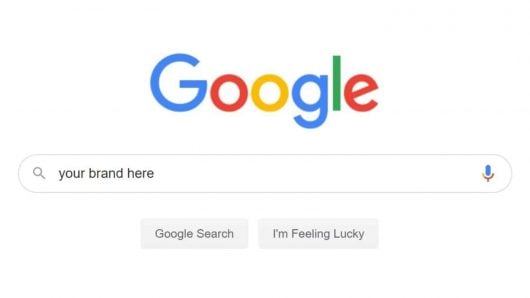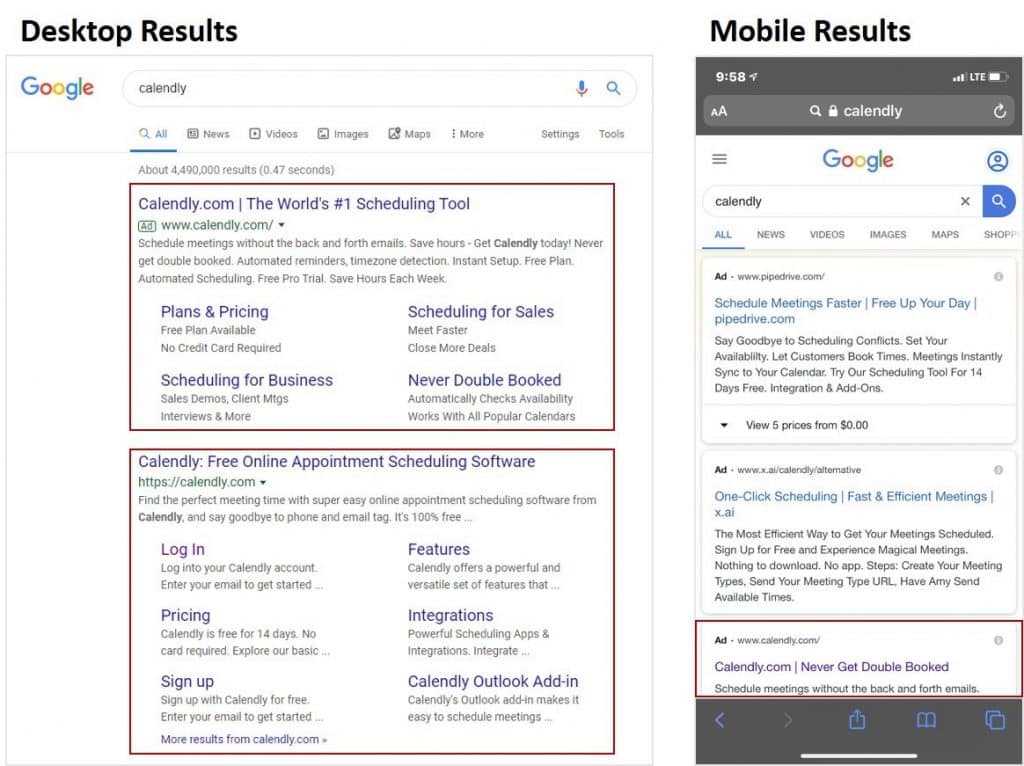To bid on or not to bid on your brand name has been hotly contested for years. Should you? Shouldn’t you? After managing paid search campaigns for more than 17 years, I come down firmly on the side that you should bid on your brand name.
Protect that brand real estate! Well … protect it most of the time. There are times when you shouldn’t bid on branded keywords.
What Are Branded Keywords?
Any keyword that contains the name of your company, web site domain, or products is considered a branded keyword.
When you set up your campaign, include misspellings of your company name and product names, as well as variations of your domain – with and without spaces, with and without the www and the .com. Also include long-tail variants of your brand names.
For example, all of the following would be branded keywords for Nike: nike, nik, niky, www.nike.com, nike.com, air jordan, air jordan basketball high tops, mens nike trail runners light gray.
For ecommerce sites, include your company name with words like coupons, promo, deals, sales, etc. This is where sites like Coupons.com, retailmenot.com and others like to play.
Hot tip: I recommend setting up a coupon or discount code landing page, if you don’t have one already, and sending ad traffic there. Even if you don’t offer coupons or promo codes, it’s still good to have a page. Tell them why they should buy from you and not somewhere else. Tell them why you don’t offer coupons, if you don’t.
Why Bid on Branded Keywords?
Tim Soulo, CIO of search management tool Ahrefs started a bit of a firestorm back in August when he said “Sorry, I’m not going to pay for my branded keywords. It’s Google’s job to rank me #1 for my brand. Period.”
But it’s not Google’s job to rank your ad number one in paid search. Organic, if that’s the best user experience, sure. But not for paid. Google’s paid advertising role is just that – advertising. Period.
Now, if your competitors aren’t advertising on your name, and there isn’t anyone else there, you are probably okay to not advertise on your name, as long as you are keeping an eye on those terms on a frequent basis.
But there are two scenarios when it’s extremely important to advertise on your branded terms:
- When your brand name is similar to generic keywords that describe the industry, such as Restaurant Supply, Bulk Office Supply, or Wholesale Floral.
- When you’re advertising a services company – like a lawyer, plumber, exterminator, etc. – in extremely competitive areas.
Beyond that, it’s up to you. But if you don’t advertise on your own branded terms, you open your company up to the risk of your competitors advertising on your name. You’re leaving that prime real estate open for someone else to come in and show themselves to people searching for you. Sometimes it’s not even competitors, but ancillary companies.
Or it could be due to Google’s or Microsoft’s blurring of match types. I can’t stress this enough: Google Ads and Microsoft Advertising blur the lines between match types, making bidding on your brand even more important. The word “supply” can map to the word “supplier” or “supplies” as close variants. The ad platforms can even drop a word completely, which means that a competitor might not actually be targeting your brand name, but showing up for your branded keywords anyway.
Another thing to consider is the differences in results on devices for the same keyword. Results on desktop can be significantly different than what they look like on mobile.
For example, take a look at the branded search results for calendaring tool Calendly.com, shown below.
On the left, the red-circled results illustrate that Calendly.com dominates the top of desktop search results for its own company name. The mobile results shown at right are significantly different, though, despite being searched at the same time: two ads above the Calendly.com ad, with no organic result showing at all.
The same search for the same branded keyword at the same time produces completely different results on different devices.
Other reasons to bid on your brand name:
- Control: You can completely control the results. You control exactly what verbiage is shown and what landing page the ad points to. You can highlight promotions or other benefits that organic results just can’t do.
- Reputation Management: Perhaps you have a bad review that shows up when your brand name is searched. Adding another ad at the top can help push that bad review down on the page.
- Quality Score: Click costs are usually quite inexpensive but the Click-Through Rate (CTR) and quality score for relevancy are quite high, which can effectively help your overall account quality score. This isn’t an exact science since Google keeps account quality score in a black box, but it is a logical conclusion.
Some of the people who chimed in on Soulo’s statement about Google positioning back in August also mentioned that PPC practitioners might use it to inflate their results and report higher levels of performance. A good PPC practitioner will look at brand versus non-brand, as well as blended performance. They will also look at the conversion path – which ad clicks resulted in a conversion – and take that into consideration.
Very rarely are there disadvantages to bidding on your brand name, and there are clear advantages to doing it. I highly recommend if you are on the fence about bidding, do a test for six weeks. Instead of holding out and trying to “stick it to Google” – yes, I hear this from clients – let the data tell you what’s best for your company. Compare the paid performance to the organic results during that time. Was there measurable decline? Did your overall company results increase?
One more thing to keep in mind: Just because competitors might not be advertising on your branded keywords now, that could change in the future. The search results landscape changes frequently, and you need to constantly stay on top of what’s happening.





